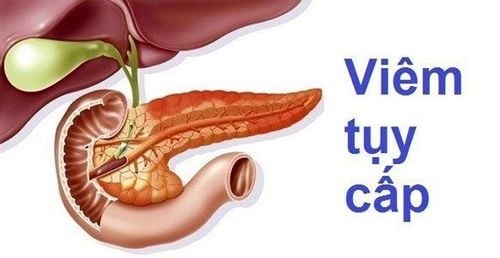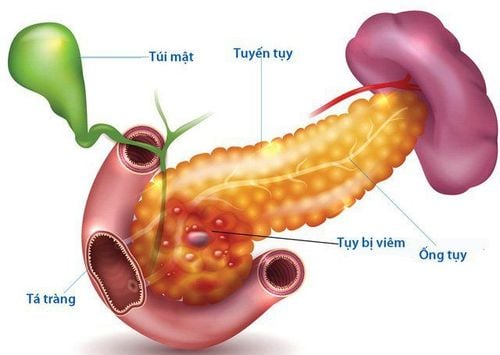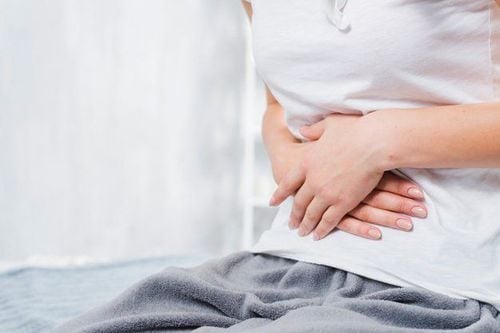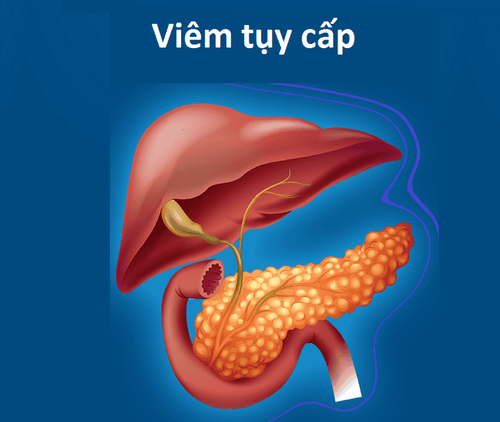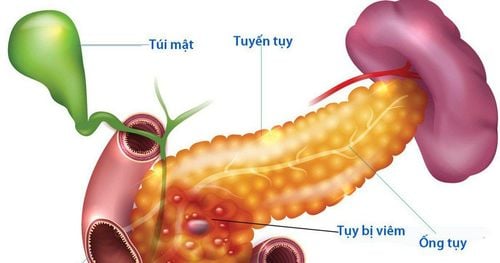This is an automatically translated article.
The article was professionally consulted by Specialist Doctor II Bui Thu Huong - Head of Emergency Unit, Vinmec Times City International General Hospital. Dr. Huong has 37 years of experience in the industry and is former Head of Gastroenterology - National Children's Hospital. Her strength is in the diagnosis and treatment of diseases, emergency resuscitation in infants and young children.Acute pancreatitis in children is a great concern for parents. In particular, when pediatric patients are not diagnosed and treated in time, they will face dangerous complications.
1. Recognizing children with pancreatitis
Acute pancreatitis is an inflammation of the pancreas resulting in damage to the follicular cells due to destruction of pancreatic enzymes.Acute pancreatitis in children is often associated with a variety of medical conditions. The course of the disease can be mild, self-limiting to very severe, which can be life-threatening.
Usually, children with acute pancreatitis have abdominal pain, usually after a greasy meal. The child has pain around the belly button or pain above the belly button, the pain increases, especially the pain is worse after eating. Children with acute pancreatitis may have vomiting, fatigue, obvious signs of dehydration, and eating less.
After mumps, there may be complications of acute pancreatitis; Therefore, when children have mumps, parents need to pay attention.
2. Diagnosis of pancreatitis in children

In addition, the doctor will do some of the following tests to diagnose acute pancreatitis in children.
Blood test Blood count: In acute pancreatitis, white blood cell count may increase, Hematocrit may decrease Amylase/blood index increases more than 3 times the normal value, increases to the maximum level and can last from 3 to - 3 times. 5 days. However, an elevated amylase/blood index usually does not indicate the severity of the disease. Amylase/urine elevation for more than 2 weeks is only valid when the amylase/blood elevation is less than 3 times the normal value. /blood increased 3 times compared to normal, with higher specificity than Amylase/blood Ionogram, blood gas, blood glucose, urea/blood, creatinine/blood, triglyceride, LDH,... are indicated in case Suspected severe disease Blood culture: When infection or pancreatic necrosis is suspected. Diagnostic imaging Abdominal ultrasound is valuable in diagnosis and prognosis. Approximately 20% of cases of acute pancreatitis have a normal ultrasound appearance at baseline. Abdominal X-ray unprepared: when necessary to differentiate bowel obstruction or perforation. Abdominal CT scan.
3. Treatment of acute pancreatitis in children

After that, the patient will be rehydrated, the patient may have to take antibiotics if the disease is severe. A child's hospital stay will be very long, possibly up to a month.
In particular, pediatric patients may have to resort to surgical measures when:
Necrotizing pancreatitis with vomiting, abdominal distension, pain when pressed, toxic infection on the face. Pancreatic abscess > 3 cm in size. Hemorrhagic pancreatitis. Pancreatic pseudocysts grow rapidly or are > 5 cm in size or persist for > 4 weeks.
4. Treatment of acute pancreatitis in children at Vinmec Times City
Vinmec Children's Center is well-invested and fully equipped with a system of clinics and inpatient rooms of international standards arranged at the hospital according to specific areas.Pediatrics Clinic and specialized specialties (endocrinology, neurology, cardiology, tropical diseases), Vinmec Times City International General Hospital examines and treats children with common pediatric diseases & diseases Specialization: Acute pancreatitis, Kawasaki, encephalitis, early puberty, staphylococcal sepsis, 4S syndrome, hemophagocytic syndrome, recurrent peptic ulcer disease,...
Patient The professional responsibility of Vinmec Pediatric Clinic is Assoc. Prof. TS.BS Nguyen Thi Hoan - Head of Pediatrics Clinic, Vinmec Times City International Hospital with 40 years of experience in pediatrics and a leading doctor in the specialty. Pediatric endocrinology in Vietnam.
Please dial HOTLINE for more information or register for an appointment HERE. Download MyVinmec app to make appointments faster and to manage your bookings easily.





